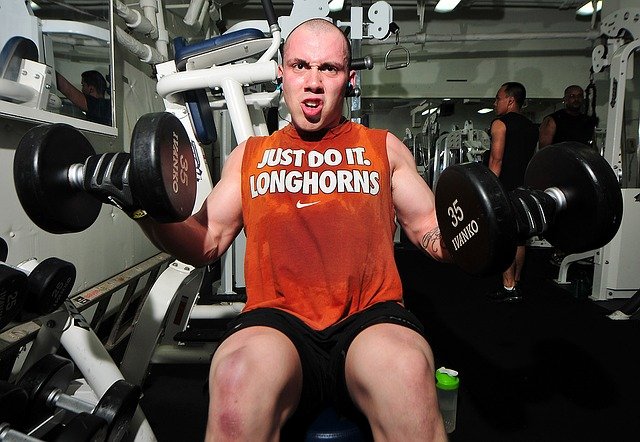The male sex hormone testosterone is produced predominantly in the testicles but also other regions of the body, such as the adrenal glands. It’s in charge of a man’s sexual development (e.g., testes and penis growth) and sexual function (including sex drive and sperm production). It also aids in the development of male characteristics such as facial hair, a deeper voice, and increased muscle mass. Women manufacture testosterone in the same way as men do, but at a much lower level. While there are therapies for low testosterone, many men prefer to begin by making healthy lifestyle changes that will help them naturally increase their testosterone levels.
Mix Cardio With Strength Training
 First and foremost: In general, exercise can assist you in losing weight and maintaining a healthy weight. We also know that being overweight might lead to decreased testosterone levels. So, if you’re not already exercising, adopting a weight-loss training plan may help you increase your levels. Cardio can help you burn a lot of calories, while strength training can assist raise your overall metabolism so that you can burn calories even when you’re not exercising.
First and foremost: In general, exercise can assist you in losing weight and maintaining a healthy weight. We also know that being overweight might lead to decreased testosterone levels. So, if you’re not already exercising, adopting a weight-loss training plan may help you increase your levels. Cardio can help you burn a lot of calories, while strength training can assist raise your overall metabolism so that you can burn calories even when you’re not exercising.
Furthermore, both types of exercise, particularly strength training, can aid in the recovery of muscle mass lost due to low testosterone.
Improve Your Eating Habits
Low testosterone levels are far more common in obese males. Abdominal fat, in particular, is predicted to play a significant role. As a result, losing weight and maintaining a healthy diet can help you boost your testosterone levels. When raising your testosterone levels, avoiding processed, simple carbs like those in chips and other junk food is crucial to a balanced diet.
Take Efforts to Minimize Your Stress Levels
 When you’re stressed, your body produces cortisol, a stress hormone. This hormone assists your body in preparing for and responding to stress, after which it returns to normal. However, when you’re stressed frequently (chronic stress), you’re exposed to cortisol for an extended period, and studies suggest that cortisol in the bloodstream lowers free testosterone levels. While life will always be challenging, you can reduce the amount of stress you are experiencing.
When you’re stressed, your body produces cortisol, a stress hormone. This hormone assists your body in preparing for and responding to stress, after which it returns to normal. However, when you’re stressed frequently (chronic stress), you’re exposed to cortisol for an extended period, and studies suggest that cortisol in the bloodstream lowers free testosterone levels. While life will always be challenging, you can reduce the amount of stress you are experiencing.
Low testosterone can also be caused by medications you’re taking for a health problem you’re already aware of or past treatments such as chemotherapy or radiation. Seeing and getting evaluated by a men’s health specialist can help you determine what’s causing your low testosterone levels. In addition, your doctor can help you figure out which lifestyle modifications listed above are the most significant for you. Prescribe testosterone treatment, and refer you to experts who can treat any underlying health issues that may contribute to your low testosterone levels.…

